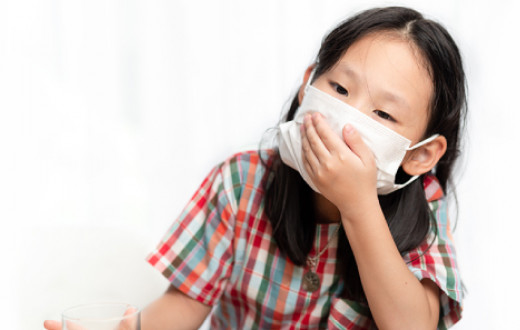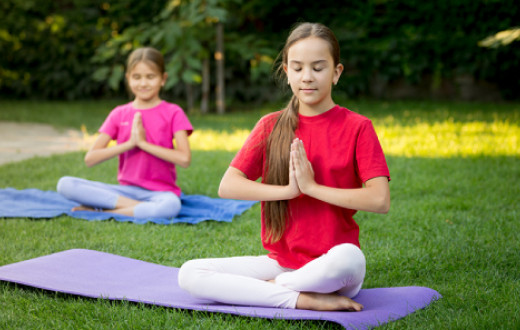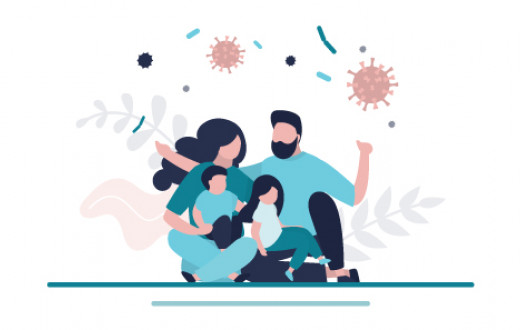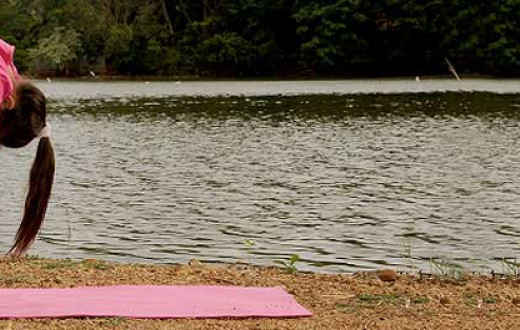Parents may have to yell when their child is in a dangerous situation like playing on a busy road, or when kids are hitting each other. Such incidents happen occasionally. But frequently calling your children “dumbo” when they make mistakes and the like can leave a long-term adverse impact on them. Parents usually let loose their irritation, and anger, in their voices when they can't figure out a better way to get things done by their children.

Facts reveal more!
Research shows that aversive disciplinary strategies like yelling, pinching, denying food, and hitting or shaming children may bring some immediate results. Your urgency to save them from dangers or their fear of you may make your child obey your orders momentarily. But using harsh verbal abusive words and yelling at children can have a long-term negative effect on them much like corporal punishment.
UNICEF says that even newborns don't escape the punishment. Abusive tactics are used on children in the budding years, between the ages of 0-6 years.
If you are into frequent yelling and shouting at your kids, some of the effects below may convince you to look for alternative ways.
Does yelling in anger turn you into a hulk? Watch this video by Gurudev Sri Sri Ravi Shankar.

The short-term effects of yelling at children
- Yelling scares children as parents have a weird look while shouting at them.
- It gives rise to behavioral issues in children, such as bullying and misconduct.
- Children and teens withdraw from their parents due to aggression.
- Poor performance in grades and school achievements.
- It may lead to physical problems such as headaches, back and neck issues, and other chronic ailments.
The long-term effects of yelling at children
Exposure to parental verbal aggression (PVA) increases the risk of psychopathological development, specifically mood, anxiety, and other mental health disorders.
The brain's language and sound processing parts are affected by anxiety and emotionally abusive language.
It increases the activity of the amygdala (the emotional brain), which triggers the stress hormones in the bloodstream and leads to muscular tension.
The exposure of a child to parental anger in the form of yelling may teach the child to respond to adverse stimuli with rage. In other words, parental anger expression may lead to children’s imitation of anger.
Children get depressed. This condition prolongs with them as they grow up.
It gives rise to emotional issues like low self-esteem as they can't self-regulate their emotions.
The parent-child bond gets hampered for life.
“Don't worry that children never listen to you; worry that they are always watching you",
says Robert Fulghum.
Side effects of shouting are seen in parents too
Parents feel anxious and out of control. The physical cues of a tight chest, indigestion, increased heart rate, and short breathing patterns are evident in yelling parents.
Know the powerful breathing techniques and wisdom that will help with anger management at The Art of Living Online Meditation and Breath Workshop.
Creative and science-backed alternatives to yelling
Practice some of the below creative alternatives to yelling and timeouts with conscious effort.
Find out if your reason for yelling is valid on the spur of the moment.
Break the vicious cycle of your yelling and your child’s misbehavior. Research says that when parents yell, the child’s bad behavior increases rather than decreases.
Act the way your grandmother would if she was in your place. For example, hug your child and whisper, “In ten minutes, let us show all that you have a clean room.”
Uplift your thoughts. Instead of thinking all about yourself, see how you can help your child.
A silent zone is better than yelling in the heat of the moment.

Do their favorite things with them.
If you have a deep connection with your child, yelling is not in your vocabulary. Nurture the bond with your child by doing their favorite things with them. Cycle or take care of pets.

Learn that one look to convey all.
In my childhood, without saying a word, ‘the look’ my elder sister gave was enough to convey that I was irritating her. Learn that one look and telepathically communicate with your child to behave.

Be more productive than yelling.
My friend’s kids messed up with her make-up kit to decorate the mirror. She didn’t opt to yell. She asked them, “Can you get me the glass cleaner and cloth to wipe the mirror?” While cleaning, she patiently told them, “Do you know your art on the mirror will not stay forever as you need it to get ready for school? You may draw your art on a chart with the proper color set.” Her kid got inspired to help in cleaning. This approach will teach the kids to act calm if others have messed up their things and the real-life consequences of their actions.

Humor replaces yelling.
Make-believe acts distract your cranky kids and get them to behave as per your expectations. When my kid would laze around instead of finishing his homework, I turned my hand into a tickler. He would suddenly jump with joy and enthusiasm. Surprisingly, he would complete his homework in no time.
Gurudev Sri Sri Ravi Shankar says, “Fake it till you make it.” Fake a smile till you smile from within effortlessly. A smile sends a signal to your brain that ‘All izz well’.
We usually yell from a distance. So move closer to your kid the next time you are about to shout. You will calm down faster.
The way children imitate your yelling, they will also imitate your respectful gesture. Therefore, it will not be easy to get angry at them as they respect you.
To conclude
Know your child. Is he misbehaving to seek your attention? Is he in a state of emotional turmoil? Is he confused about his feelings and unable to communicate appropriately?
Did any of these instances resonate in your life? If so, you could read Know Your Child: The Art of Raising Children by Gurudev Sri Sri Ravi Shankar to get an all-round view of raising healthy children.
You could also attend a Know your child workshop to help you connect better with your child.
Hence, yelling is not an effective tool for parenting.
Yell to warn and talk to communicate.
Reference links
Effective discipline to raise healthy children: A review
Child protection program includes children's rights to grow up in a family environment, protected from abuse, violence, blame, and shame.
Exposure to parental verbal abuse increases gray matter volume in the superior temporal gyrus.
A history of childhood trauma has long-term effects on adulthood cortisol responses to stress.
Related links
5 things you need to know about stress
5 super brain yoga exercises to boost your gray matter
Based on inputs from Gurudev Sri Sri Ravi Shankar
Written by: Pratibha Sharma
















